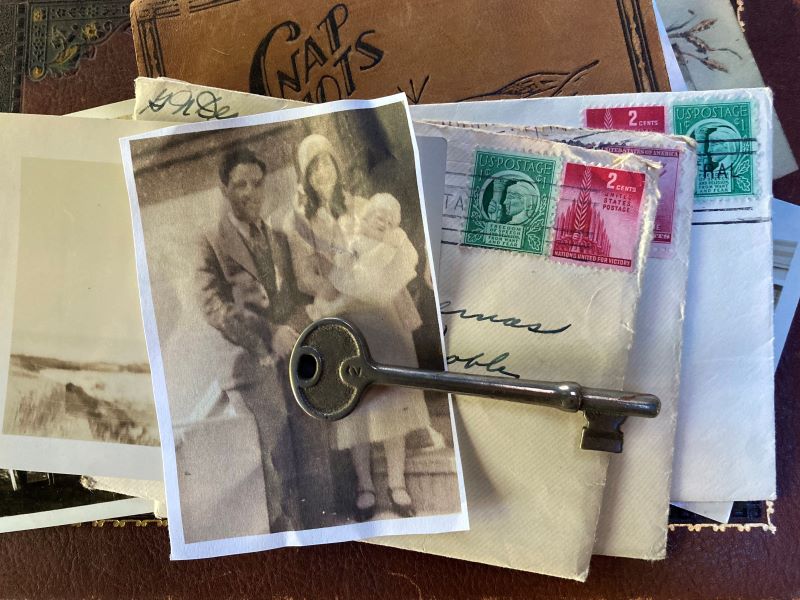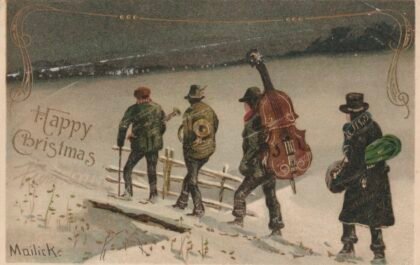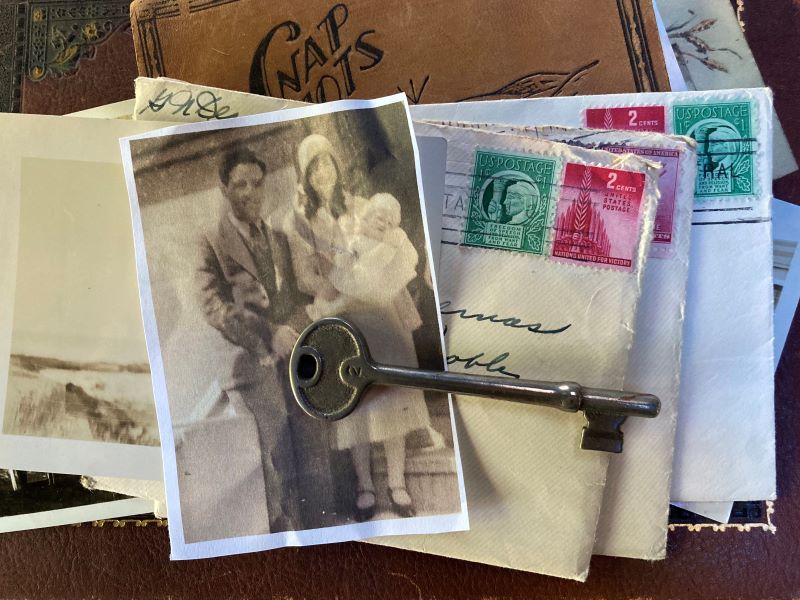
School brought changes. I missed Kitty terribly. We had made so many plans together about what we would do and what classes we would take when we were junior high school students, and here I was without her. Kitty would be starting the new school year, too, but far away at Manzanar. She had written about how much she was looking forward to having classes again, and how they were trying to find teachers and anything that could be used for desks and chairs. I wished she was here.
Jacob had to take placement tests because he had missed so much school, but he didn’t have to be put back a year, probably in part because of all the time he had spent at the library reading archaeology journals and the last month spent among the old National Geographic magazines, but also because he was really smart. He finally had to face the social workers he had run away from. He didn’t like it much but he did it. Aunt Maddie filled out forms and met with not just the social worker but all kinds of officials to verify that Jacob didn’t have any living relatives, and then to be appointed his legal guardian.
“It’s just a formality,” she told him. “I know you would rather be the captain of your own destiny, and you will be when you are 18, but right now the law regards you as a child, and children who don’t have relatives need a guardian. If you want my advice, Jacob, take advantage of still being a child and don’t wish your life away. You’ll have plenty of time to be an adult, a whole lifetime of it.”
Jacob gave up his dream of joining the Army and focused on school. He turned out to be a good student. He was popular, too, despite being quiet, and never got into trouble. Jessie and I did. She got detention for arguing with her teachers. I was told off for always having my head in a book or in the clouds, but I was happier than I’d ever been at school. Aunt Maddie didn’t pressure me to go in for sports, and never told me to get my head out of the clouds.
“I spend quite a lot of my time there, too, James,” she said.
The summer weather lasted and lasted that autumn. I looked longingly at that blue expanse of ocean and empty shoreline from the windows of the bus as we rattled and clanked to and from school. Sometimes Jesse and I slipped down for a quick beach walk on our way home from the bus stop, but the trip home from Santa Monica was long, and as the days grew shorter there was barely time to get home before dark.
I still helped feed the animals with Aunt Maddie before school, even though school started earlier for me now. That time was special, all the more so because my aunt was forced to spend more time in town on the film project she was working on, and the Dim Out laws meant she couldn’t safely drive home after dark. If she had to stay over in town she still tried to arrive home in time to feed the animals in the morning. If she was late I did it on my own, but I missed her, and so did the horses and the goats.
“My part is almost over, and thank goodness for that,” she told me. I know the Navy needs training films, but it would go a lot smoother and faster if they just stepped back and let the filmmakers make them.”
Jacob was getting stronger. The scar on his arm still looked awful but the bruising had faded and the swelling was finally down. He accompanied Mr Calzada on his evening rounds and did what he could to help at the ranch. He worked as hard as Mr Calzada would let him, but I knew the grownups were all still worried about him. Jacob celebrated his seventeenth birthday with cake and ice cream at the ranch with all of us, instead of at the Army recruiter’s office the way he had always envisioned. I don’t think he minded much.
When she judged him to have recovered enough, Aunt Maddie put Jacob to work cleaning out the tiny apartment over the stable. It had been built back in the days when people had grooms and stable boys. Aunt Maddie had started fixing it up when she bought the ranch but never finished. It had become a sort of attic for things that didn’t get used much. It needed to be cleared out and given a good dusting, but it had a tiny bathroom, a wood stove for warmth, and it was wired for electricity.
“I know you want to be on your own,” Aunt Maddie told Jacob.” And this way you can have your own place, but you will have to have your meals with us at the house. There’s no room for a kitchen here.”
Aunt Maddie oversaw the cleanup and I helped Jacob, but all three of us kept getting distracted. It was fascinating. There was an old steamer trunk filled with things from when Aunt Maddie traveled the world. I found out she lived abroad for five years, and had traveled all over Europe—England, France, Switzerland, Italy, Spain and Turkey, and Greece, and then to Egypt and even all the way to South Africa.
“My brother died in the war in France,” she said. “Your mother, James, got married and moved away. I didn’t have anything to hold me here, so I went in search of Adventure with a capital A.”
Why did you come back?” Jacob asked. “I wouldn’t have.”
“‘All things return home at eventide, like birds that weary of their roaming,’” Aunt Maddie said.
I recognized the quote from one of the old songs I was learning to play on the piano.
She turned to look at the contents of a box I had just opened. It contained old dresses.
“And here are the fine feathers for that bird,” my aunt said with a laugh, shaking out a gown of poppy-orange silk decorated with little sparkling beads.
“Kitty would have liked that, “ I said, admiring the rich color and remembering how much my absent friend loved pretty things. I was distracted by Yuki. The little dog snatched an old fashioned lady’s shoe out of the trunk and was pretending it was a rat, shaking it and growling.
“Drop it, Yuki,” my aunt commanded. “I might need that before the war is over. Good shoes are getting hard to find.”
The little dog obeyed at once. The shoe was slightly damp when I retrieved it, but not much worse for wear. Aunt Maddie didn’t notice. Her attention was fixed on an old photograph. It showed a group of people dressed in funny, old-fashioned wool swim suits posing in front of a bungalow on the beach. It was easy to pick out Aunt Maddie. She really didn’t look that different, I thought. Her hair was black instead of turning gray, but the wind-blown curls were just the same. Her face was alight with laughter, and it also wore that familiar expression of being interested in the things around her.
“That’s when I first came back from London,” Aunt Maddie said. “I lived in one of the beach cottages down in the Malibu Colony for a while—they were new, back then. That was before I found this place. I had forgotten that photograph.”
She took the old photograph with her. Mr Calzada and I helped carry the steamer trunk and the box of old clothes back to the house. We left Jacob deep in old National Geographic magazines. He was so interested in them that Aunt Maddie suggested he keep them there to read in his spare time.
There was already furniture in the tiny apartment. An old table made a good desk. There was a pair of rush-bottomed chairs for sitting at the table, and a wicker basket chair with a hassock for relaxing. The iron day bed in the corner got a coat of white paint and a new bedspread and pillows. Aunt Maddie contributed blackout curtains for the windows—no light could show at night—that was part of the Dim Out rules for the whole coast—a couple of lamps, one for the table, one for next to the bed, and a framed movie poster that proclaimed “The Sands of Afar.”
The poster showed a man and a woman dressed like explorers. The man had a flaming torch in one hand and his other arm around the woman. They were looking into each other’s eyes instead of at the mountain of gold and jewels in front of them. A sinister shadow, shaped like a huge hooded cobra, loomed behind them. A caravan of people on camels traversed a sand dune in the background, silhouetted against a starry sky, completing the design. Above the movie’s name, large yellow letters proclaimed: “They Unearthed an Ancient Curse. Will They Survive?”
“Did they survive?” I asked, fascinated.
“Oh, yes,” my aunt said. “They usually do in movies, no matter what. Sometimes they even get to do it again in the sequel. It wasn’t a very good film, despite our best efforts, but I always thought the poster art was first rate. And I thought the theme was appropriate,” she grinned at Jacob. He gave her a shy smile in return.
Jacob added some treasures of his own. On the shelf next to his bed he placed a photograph of a young man and woman with a baby. You could tell they were wearing their Sunday best.
“You and your parents?” I asked.
He nodded, and swallowed hard. “I have their marriage license too, and some letters they wrote before they were married. That’s all I have left of them, except for this.” He pulled an old fashioned key out of his pocket and put it on the shelf next to the photo.
“It’s from the front door of the farm,” he told Aunt Maddie and me. “I used to dream about going back and unlocking the door and going in, going home. It seemed that as long as I had the key I could still go back.”
Wordlessly Aunt Maddie pulled a key out of her own pocket. It was the modern kind, new, with a paper tag on it from the locksmith’s shop. She handed it to him.
“Here’s the key to this home, Jacob. You will always be welcome here, and as long as this ranch is my home, it’s your home, too, you and James, both. You can’t go back, except maybe in dreams, but you can always go forward.”
I spent what little free time I had practicing the piano or at the beach with Jessie, and we almost always did our homework together after school. We both missed Kitty, but things had slipped into a comfortable pattern, and I was feeling pretty ok, until the letter arrived at the end of September.
It was from Aunt Charlotte. It was about my father. He was sick with something called rheumatic fever. There was an outbreak on the ship and he and some of his patients had been dangerously ill. He had been fighting for his life all summer, not against the enemy but against an illness, and now he was being transferred to a hospital in Hawaii.
My anxiety returned in a dizzying wave, followed by a surge of anger.
“Why didn’t anyone tell us? I demanded. “Why didn’t he tell us?”
“Don’t panic, James,” Aunt Maddie said, putting a comforting arm around my shoulder. “If he’s being transferred that’s a good sign, it means he’s stable enough to be moved.”
We spent that afternoon trying to get more information by phone. My sister Aly hadn’t heard the news either, and all Aunt Charlotte knew was that my father was very ill. She told us that she had just received the news herself, and that was because she was listed as Father’s next of kin. I’d never heard Aunt Charlotte’s voice sound so shaky and quiet. I don’t think I realized before how much Father meant to her. It made her seem more human, but only a little more human. She made sure to lecture me about schoolwork and how I needed to work harder if I was ever to “make something” of myself. At least she sounded more like herself by then. She was able to give us the name of the hospital before the call ended. It was a new hospital, one built especially for soldiers. Aunt Maddie tracked down a number with the help of the operator, but she couldn’t get through.
“It’s not easy getting a call to Hawaii, James,” she told me. “It doesn’t mean anything. Don’t be discouraged. Why don’t we send your father a telegraph?” she suggested. “What do you want to say to him?
We sent the telegram. It was a long one—I couldn’t fit what I needed to say into just 10 words—but Aunt Maddie said not to worry about how much it cost. After that I waited, and waited, and waited. All we could do was speculate. We kept telling each other we hoped for the best, and that he was getting the best possible care, but all the time we feared the worst, or at least, I did. Not knowing was a constant nagging presence, like the pain from a toothache.
“I know it’s hard to wait, James,” Aunt Maddie said. “But I think no news really is good news. We would hear if there was bad news.”
That was probably true, but it wasn’t very comforting.





